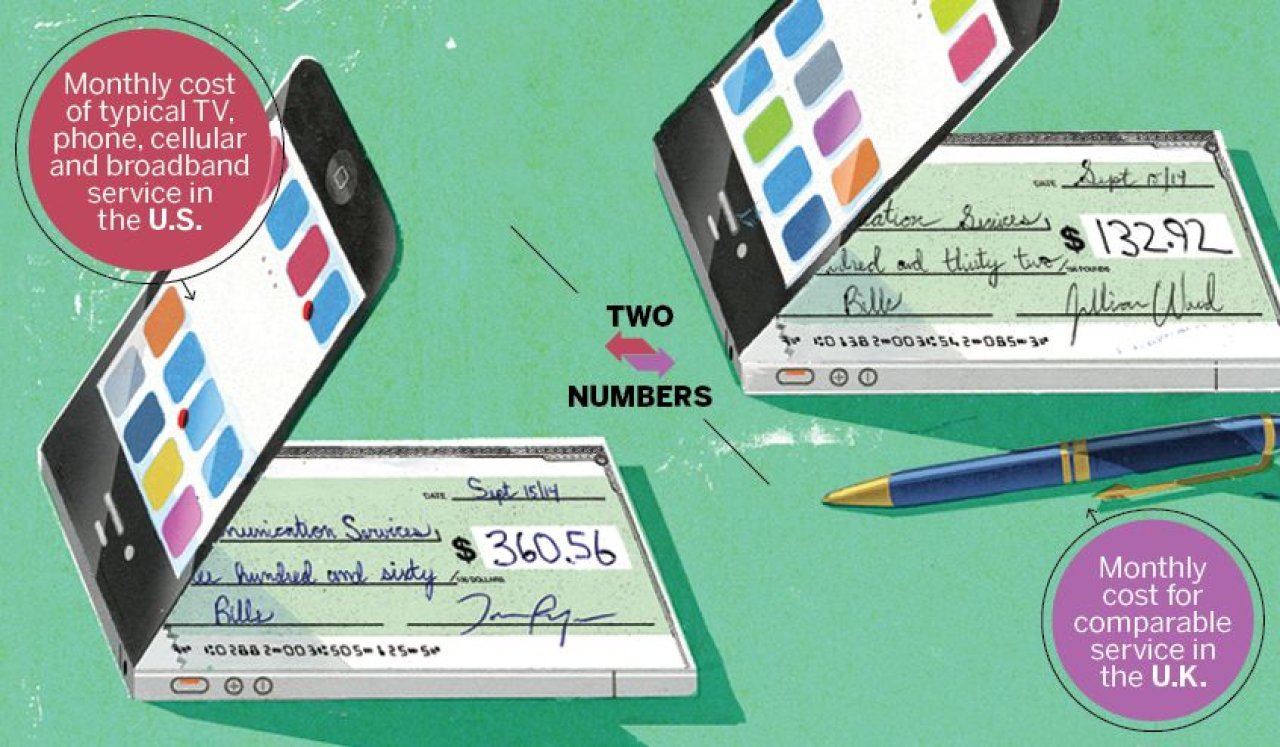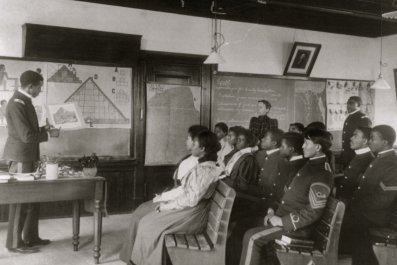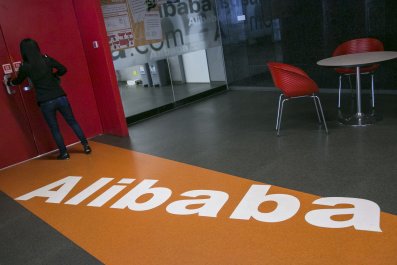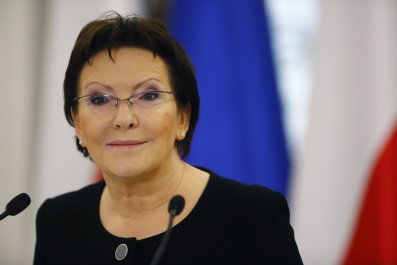The amount an American family spends on phone, television and Internet services each year can easily come to several thousand dollars. If that sounds like a lot, it is. In other parts of the world, communication services are much cheaper. A British family, for example, could spend roughly one-third of what an American family does for comparable communications services.
Ofcom, the regulator of communications in the U.K., has compared the cost of services provided to the British with other major nations. The findings were clear. In one example, the regulator looked at a connected household in six countries: the U.S., U.K., Germany, France, Italy and Spain. These households consisted of two parents and two teenage children, each with his or her own mobile device but with different usage patterns. Adults typically use more voice and teens more text messages and data. In addition, these households use landlines, home Internet connections and a pay-TV service.
The study found that France offered the cheapest total cost, $127.94 a month for the connected household. Services measured were a combination of fixed-line voice, fixed broadband, mobile voice, mobile messaging, mobile broadband and TV. The U.K. ranked second, with a monthly price tag of $132.92. The U.S. ranked last, with a monthly bill of $360.56. Italy, Germany and Spain were all cheaper than the U.S.
Ofcom also looked at other situations, from low-use households, and in every case analyzed by Ofcom, the U.S. had either the most expensive services or the second most expensive.
Part of the reason for the difference in cost is that the U.K. has the cheapest mobile phone and fixed broadband rates among major countries, while the U.S. has the most expensive. The only areas where the U.S. offers any price advantage is pay TV, where the U.S. ranked third out of six countries, and fixed voice, where the U.S. also ranked third.
Most U.K. consumers purchase their communication services in a bundle. A single provider delivers a package with TV, Internet, phone and cellphone services. In the U.S., services are often sold separately. Regulatory policy differs as well. For example, U.K. regulators require clear pricing information. In the U.S., pricing tends to be confusing, and comparisons between competitors are hard to make. U.K. regulators also have tried to ensure that consumers are free to switch if they get a better deal, while U.S. customers can be locked into multiyear contracts. No matter what the reasons are, when it comes to the cost of communications services, the U.K. seems to be sending America a message.






























